Dean Underwood’s remarks during 2019 Academic Recognition Reception
The following are remarks by Marion Underwood, Dean of Purdue University College of Health and Human Sciences and professor of Psychological Sciences, during the 2019 Academic Recognition Reception. The reception was organized by HHS Student Services and hosted by Student Ambassadors. Alumna Stacy Gudas, organizer of the first Dean’s reception, and Karen Foli, director of PhD in Nursing program, also addressed the students.
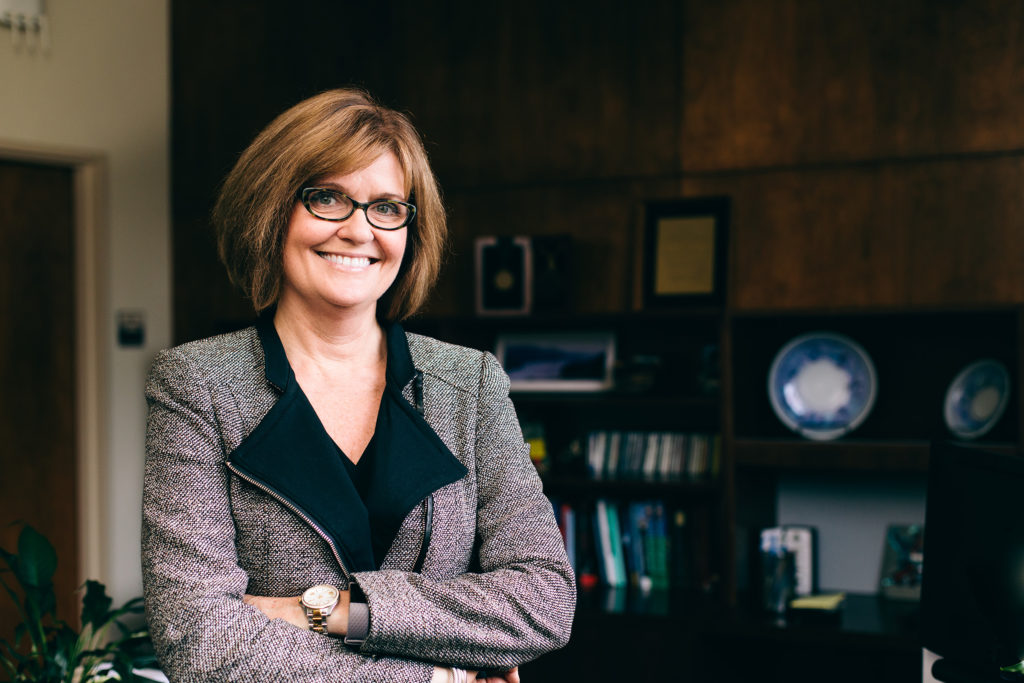
It is my pleasure and honor to be with you tonight as your new Dean of the College of Health and Human Sciences. We are here tonight to celebrate your academic success. Congratulations to you all! You have earned this recognition due to not only to your wonderful minds, but to your hard work, discipline, and willingness to persevere in the face of challenges.
Your excellent work makes our college stronger by the day, and I want to share with you a few points of pride about the College of Health and Human Sciences:
- Highest 4-year graduation rate on campus
- 40 student organizations that are specific to HHS majors
- 30 study abroad programs designed and led by HHS faculty and specific to HHS majors
- Second largest college on campus (for undergraduate students)
- Nearly all HHS faculty teach undergraduate courses (94%, compared to WL campus average of 68% as of 2016)
- All HHS majors offer an opportunity for hands-on learning, such as an internship, clinical experience, or a co-op.
The College of Health and Human Sciences exists to help our students achieve their dreams.
Our moral obligation and our great pleasure is to prepare you for work that you will find so meaningful and love so much that you might do it even if no one paid you, but of course I hope they will!
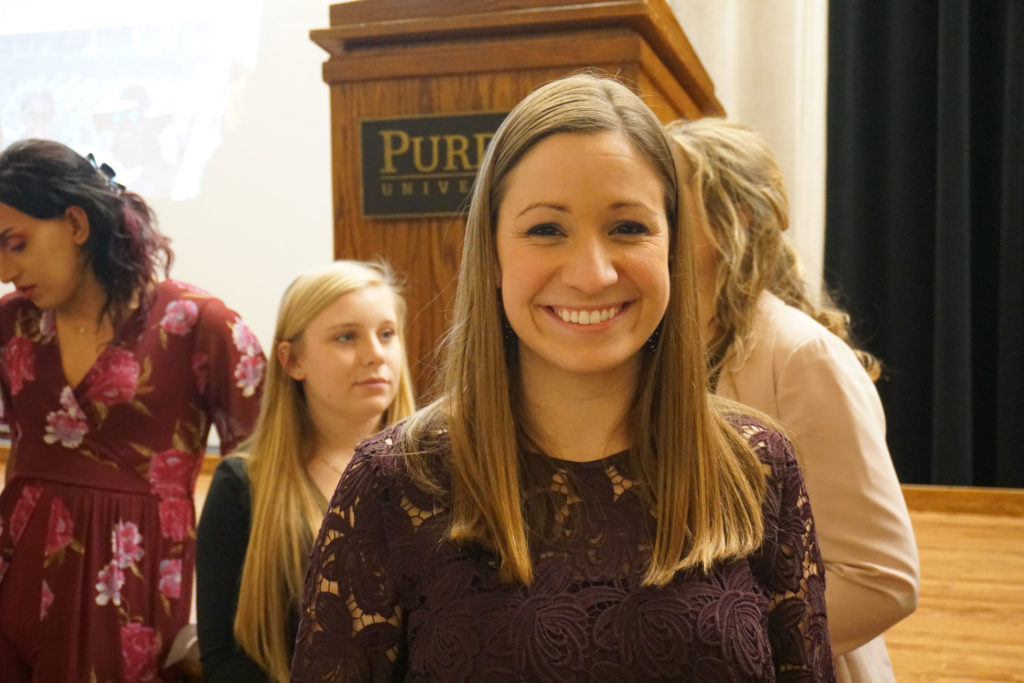
READ MORE
The College of Health and Human Sciences not only wants to make students’ lives better, we also want to increase the quality of human lives, in Indiana and beyond. We in HHS are working to solve the most pressing challenges of our time.
- Relationships, Resilience, and Mental Health – How can we understand and promote optimal relationships throughout the lifespan, to help us develop and learn, sustain us from hardships, protect us from our genetic vulnerabilities? How can we create inclusive environments to support positive development for people from all kinds of backgrounds?
- Technology, Digital Health, and Wellness – Technology has permeated every aspect of our lives, for good and for ill. How can we use all of this technology to enhance our quality of life and relationships, and not detract from them? How can technology enhance communication, hospitality, mental health and quality of life across the lifespan?
- Healthy Lifestyles and Disease Prevention – How can we make optimal choices about food, nutrition and physical activity to promote health individually, in families and in communities? How can we prevent chronic disease due to environment or occupational exposures? How can we promote healthy lifestyles to diverse groups, increase access to healthcare, and reduce heath disparities?
- Vital Longevity – How can we preserve our physical, cognitive and communication skills as we age? How can we help families plan for the financial resources that will be needed for end of life care, and create optimal environments for individuals who need assistance at the end of their lives?
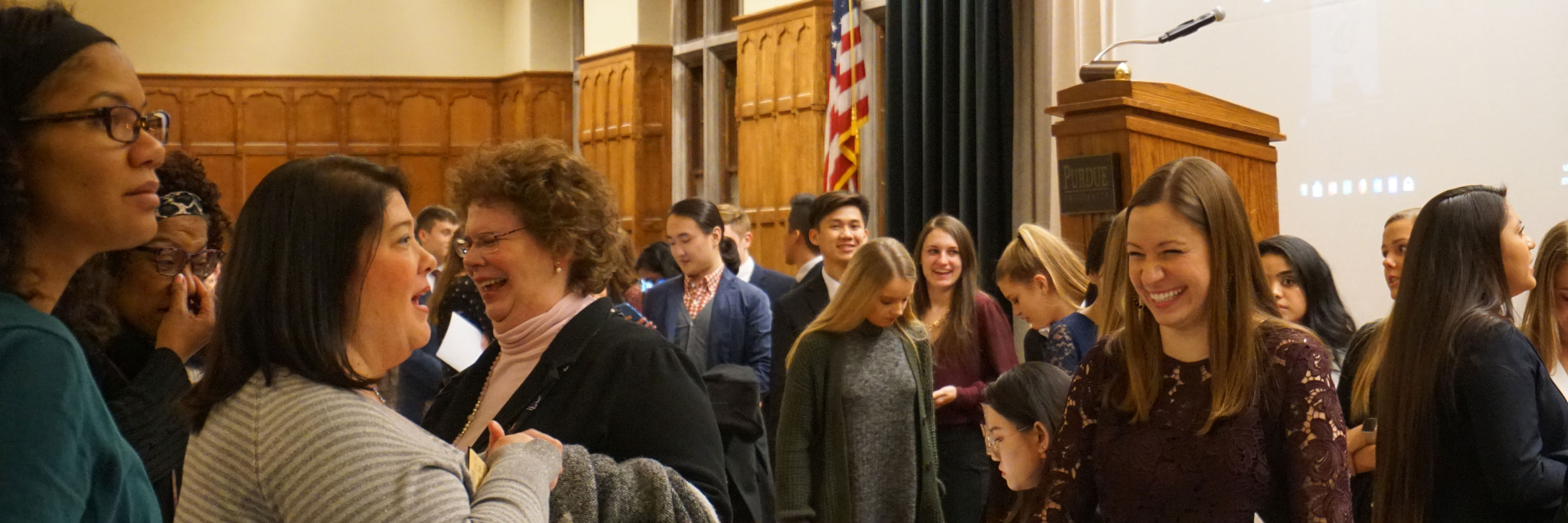
The opportunity to work with such wonderful students enhances all of our efforts in HHS.
- Strong students raise the quality of every class with your marvelous questions and leadership by example.
- Excellent students propel our research; you contribute enormously to our laboratory groups, to the progress of all of our projects, and you serve as a source of important ideas.
- Wonderful students who are training to be practitioners build strong relationships with our surrounding community.
- You bring us great joy, immense professional satisfaction, and for many of us, you are a huge part of our professional legacy. We remember you with respect and affection, and on days that might be challenging, we think of you fondly and remember why we are here. Considering your needs makes all of our decisions easier. When faced with a hard choice or limited resources, all we have to do is consider what is best for you all, and the answers become more clear.
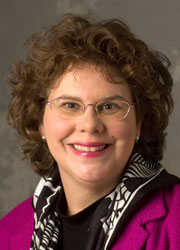
As hard as you all have worked to earn the recognition you are receiving tonight, I think it is important to remember that we are all so privileged to study and work at this marvelous university. Someone has sacrificed a great deal for all us to be here. With privilege comes responsibility, “To whom much has been given, much is expected”, so I will end with some challenges for you all, as the student academic leaders of our college.
- First, take charge of your own education. Be clear in your own mind what you hope to get out of every course you take, ask questions, speak up, raise the level of discussion, and challenge yourself to make the most of every opportunity. Show intellectual courage and be willing to take risks.
- Second, practice hospitality, the ability to welcome strangers, generously and genuinely. Don’t spend all your time with your own squad, your posse, or your clique. Fight the tendency we all have to spend time with people similar to us. Welcome chances to interact with students and faculty from different cultures and backgrounds. Study abroad if you can, but also embrace diversity right here on campus.
- Third, practice the discipline of gratitude – appreciate what you have accomplished, express thanks to those who help you, and take a little time every day to be grateful for the opportunities you have and the resources all around you. No matter what our challenges are, there really is always something to be thankful for.
- Fourth, think about what you can do every day to make other people’s lives better, to help someone who is struggling or not as successful as you are.
In 2000, the Reverend Jesse Jackson gave an address to the American Psychological Association, on the topic of “What Ought Psychology To Do?” I want to borrow his closing remarks because his essay could just have well have been titled, “What ought HHS to do?”
Reverend Jackson closed by saying:
Remember the story of the lost sheep? A shepherd called in his sheep in the evening; 99 came but 1 did not. He was worried about it, wanted to go look for it. But some argued that “You can’t save every- one,” and the 99 sheep said, “What about us? We came when called.” As they argued about whether he should go find the lost sheep, the sun went down. Maybe the one who stayed behind had an auditory problem; maybe it stepped on glass and was bleeding; maybe it was kicked by a bigger sheep, or was lost, or in distress, or had been abused.
Reverend Jesse Jackson, What Ought Psychology To Do?, address given to American Psychological Association
You, as good psychologists, as teachers, [and I would add here, good students of HHS], bring your light to dark places. Help us find all the lost sheep, and leave no one behind.
Again, my heartfelt congratulations to all of you for your academic success. It is our joy to work with you and we are counting on your help as we all work to Make Lives Better.
Now, I understand there has been a tradition at this event of ending the evening with “Selfies with the Dean.” Whoever wants a picture with me, I will stay around. Let’s get a selfie.
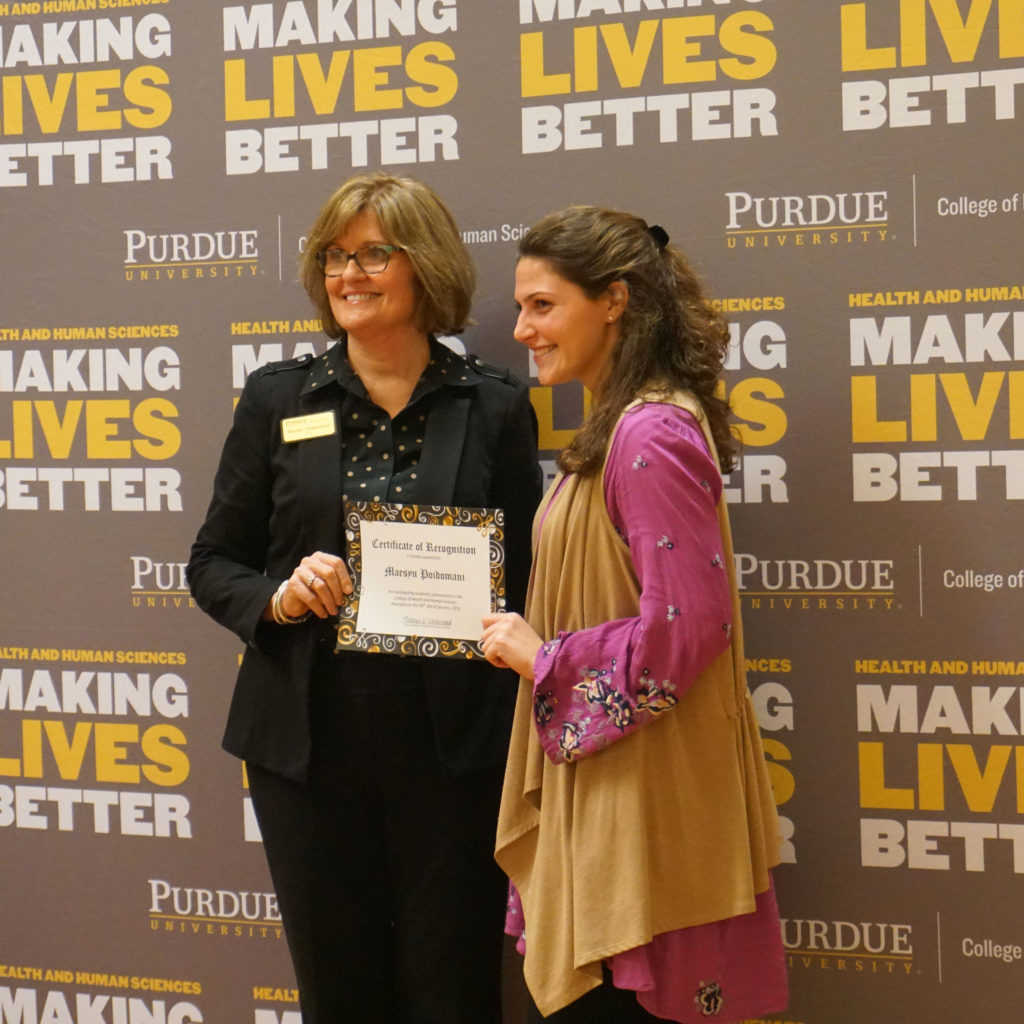
Discover more from News | College of Health and Human Sciences
Subscribe to get the latest posts sent to your email.